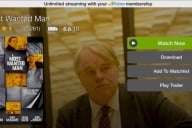You have /5 articles left.
Sign up for a free account or log in.
The EDUCAUSE Conference begins today in Anaheim. This annual gathering of higher ed’s tech tribes and tech providers is part professional meeting (lots of sessions) and part trade show (lots of tech firms on the exhibit floor). It’s a good venue for clarifying campus IT priorities (“what are others doing that we need to do here at Acme College”), and for creating wish lists (“look at all the stuff that tech firms have to offer to higher ed; if only we had money for this great stuff!”). The substantive work at EDUCAUSE really does occur in three venues: in formal sessions, in informal hallway conversations, and also on the exhibit floor
As in years past, technology leadership will be a hot topic at the EDUCAUSE conference. Tech leadership and the role of the Chief Information Officer (CIO) will be the focus of several formal conference sessions (including one I will moderate Thursday afternoon). In public forums and private conversations, there will be discussions about the appropriate roles and responsibilities of the CIO and the (at times unrealistic) expectations institutions have for the individuals who aspire or ascend to the CIO position.
Aspiring tech leaders often use the EDUCAUSE event as part of their quest for the career algorithm. Given the multiple demands on CIOs, what’s the appropriate mix of visionary, technocrat, manager, and digital plumber? How does the mix vary by campus context and culture? Do I have to have an engineering or computer science degree to become a CIO? (No! Many do not!) Who would I want to work for? Who are the interesting role models? Who could I learn from?
All this brings me to the recent passing of Robyn Render, the Vice Chancellor for Information Technology of the University of Nevada System, who lost a long and courageous battle to cancer last month. Robyn was a statistical outlier in the world of higher education tech leaders in oh so many ways. She was a black woman with a master’s degree in a world populated by lots of white guys with doctorates in scientific and technical fields. Robyn worked her way through the professional ranks at several institutions to become the CIO of the University of North Carolina System before moving to Nevada. She also served a term as chair of the EDUCAUSE Board.
Like many of her CIO peers, Robyn was smart about technology, but she also knew that the really pressing campus IT issues often have less to do with technology, per se, and increasingly involve planning, policy, campus politics and, most importantly, people. She was thoughtful with her words, tactical and tactful in dealing with both issues and individuals. Unlike many of her CIO peers, Robyn was wiling to suffer fools (at times, including me) in ways that her more credentialed colleagues often would not. She understood the importance of listening and nuance.
Although this begins to read like a eulogy, it is really intended as a reference. Current and coming CIOs would do well to recall that people, policy, planning, and political issues are all part of the daily experience of campus IT leaders across all sectors of higher education. As experts on IT issues, CIOs are often asked to speak; it is also important that current and aspiring campus technology leaders be able to listen.






